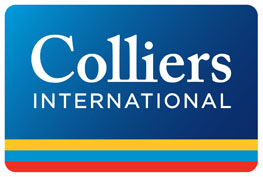Energy and Natural Resources Market Radar (January 9, 2012)

Strengths
- First Quantum Minerals Ltd. resolved a long-running dispute with Eurasian Natural Resources Corporation Pls (ENRC) for $1.2 billion over mines in the Democratic Republic of the Congo (DRC). The controversial dispute over ownership of the Kolwezi project will be settled with ENRC paying $750 million plus a deferred consideration of $500 million as part of the settlement with First Quantum, the former owner of the project until its license was revoked by the DRC in 2009.
- Crude oil futures (WTI) moved higher by nearly 3 percent this week to close at $101.56 per barrel as geopolitical tensions surrounding Iran continued to escalate.
- Barclay’s highlighted that China raw coal production in November rose 4.4 percent year-over-year to reach 321 million tonnes while total output in the first 11 months of the year rose 11.6 percent to 3.46 billion tonnes.
Weaknesses
- Weekly data released by the U.S. Department of Energy indicates that 4-week trailing total demand for oil and oil products is down 7.2 percent year-over-year and gasoline demand is down 4.9 percent year-over-year.
- Alcoa Inc., the biggest U.S. aluminum producer, will close 12 percent of its global smelting capacity after the price of the lightweight metal slumped amid a global surplus.
- Indonesia, the world’s largest exporter of power-station coal, cut the benchmark price for sales in January by 3 percent to the lowest in 13 months. The Directorate General of Coal and Minerals at the ministry said on its website today in Jakarta that the cost of coal with a gross energy value of 6,322 kilo calories per kilogram was set at $109.29 a ton on free-on-board basis at vessel compared with $112.67 a ton in December.
Opportunities
- This week on the front page of the Financial Times, it was reported that a cut in Saudi posted prices to Asia is seen as a signal that Asian buyers are looking for new sources to reduce their dependence on Iran as U.S. pressure builds over sanctions. However, RBC Capital highlighted that Saudi looks to be the most willing to offer incentives, as International Oil Daily reports that the United Arab Emirates has increased February prices, albeit only by a nominal 2 cents per barrel.
- The Chairman of the China Iron and Steel Association said this week that China's total apparent crude steel consumption is expected to rise about 4 percent to 700 million tonnes this year.
- Tudor Pickering reported that preliminary estimates show global oil production rebounded significantly quarter-over-quarter following third quarter maintenance. Biggest estimated additions quarter-over-quarter are Libya with 418,000, United Kingdom with 111,000, and Brazil with 109,000 barrels per day.
- BofA Merrill Lynch global investment strategist raised energy and gold commodities to overweight in its tactical asset allocation model for the first quarter of 2012. In their view, energy is well supported by easy monetary policy and the risk of a spike due to geopolitical events. Their model continues to overweight gold due to high risk of a sovereign default in Europe and low/negative real interest rates around the globe.
Threats
- A potential short-term rise in pricing for Colombian coal may force European buyers to seek other sources. Heavy rains have led to a two week delay in coal transport from the mine site to the ports for Colombia’s two largest producers – Drummond & Prodeco. The rains have also resulted in reduced coal production at the mines for the two companies.
- Deutsche Bank highlighted that India’s gold imports, the largest consumer, is expected to drop by 48 percent in the first quarter as a decline in the currency boosts prices and high interest rates cool investment demand, according to the Bombay Bullion Association.
- Zhu Jimin, head of Shougang Group, one of China’s biggest steelmakers, addressed members at CISA's annual meeting, saying that prospects for the steel sector remained gloomy, with the entire sector facing falling profits in 2012. "Enterprises are facing increasing operating risks, under pressure from a variety of factors such as rising costs, falling demand and difficult and expensive financing," he said. Zhu said a series of policies introduced last year to control the real estate sector had reduced demand for steel, and if the policies were not adjusted the situation could worsen in 2012. Slowing growth in domestic manufacturing, railway, shipbuilding and auto sectors could also take its toll, he added.
- Resource Daily reported that Nigerian unions are calling for indefinite strike action on January 9 to shut down both the up and down stream oil sector. The strike is in reaction to the recent government decision to remove fuel subsidies which has seen gasoline prices double. In 2010 Nigerian production accounted for 13 percent of Shell volumes and 12 percent for Total, 10 percent for Eni and 2 percent for Statoil.












